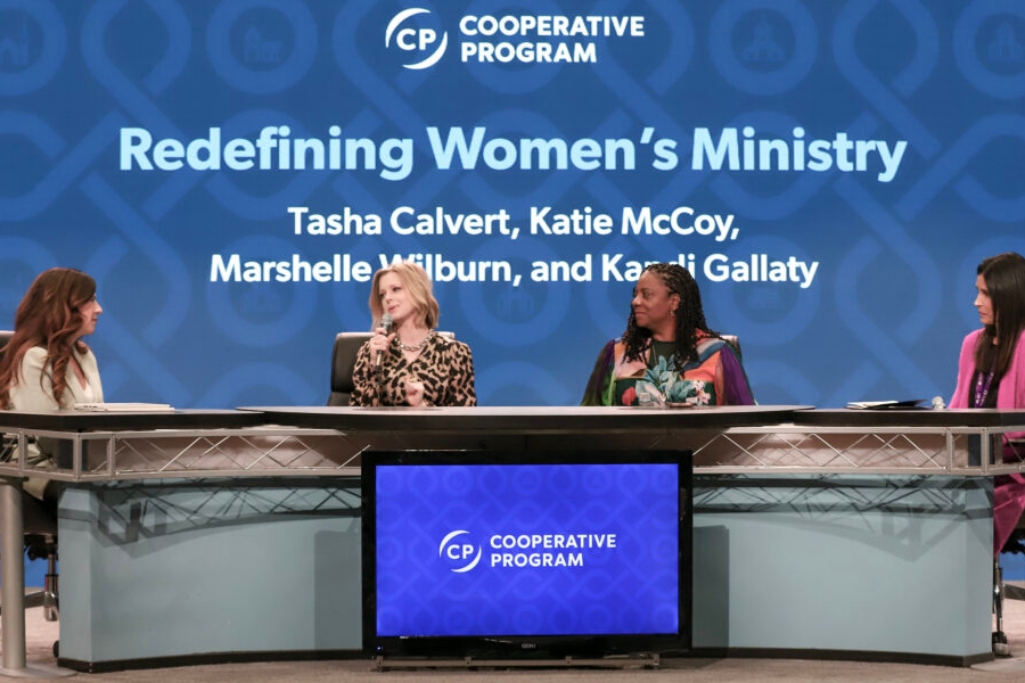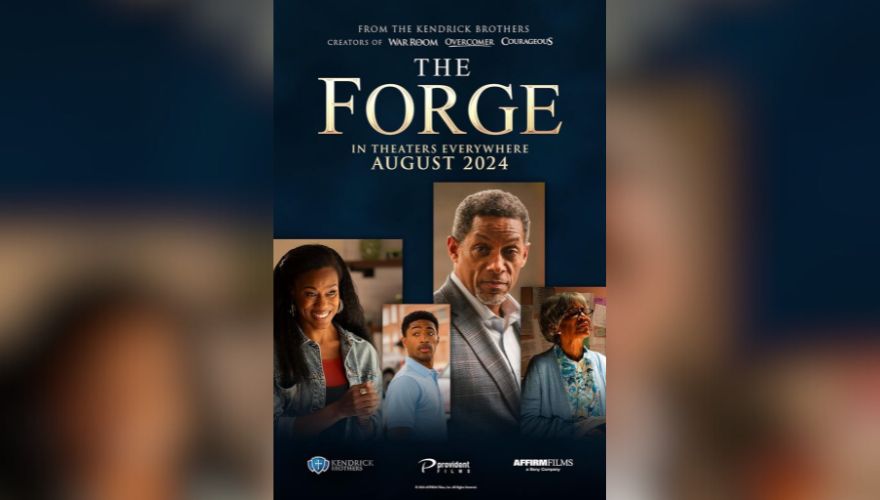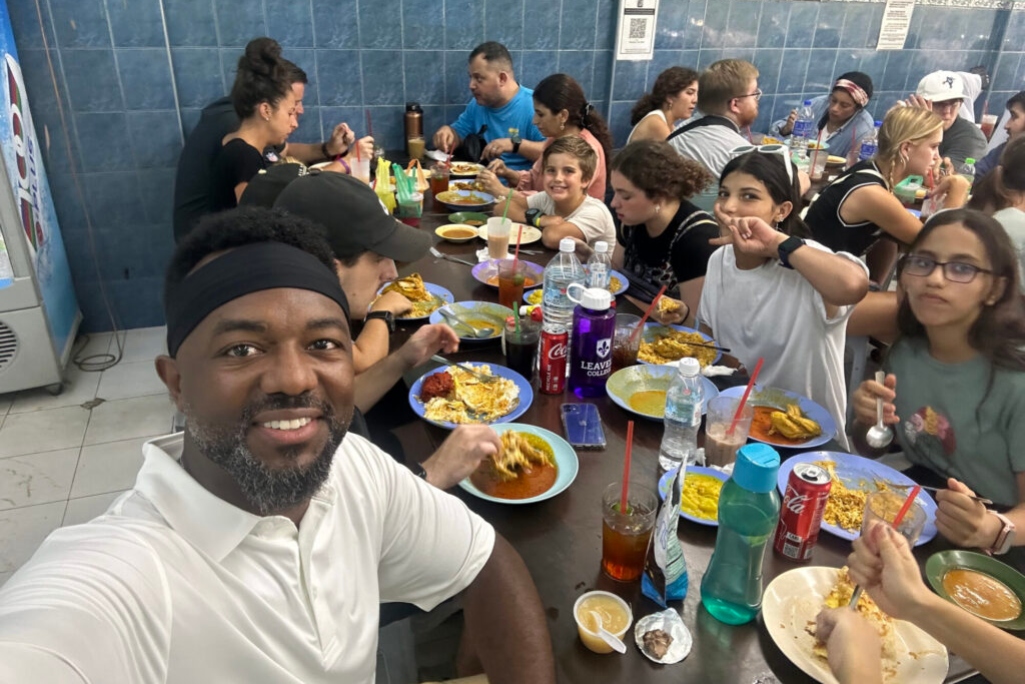
A Cooperative Program panel titled Redefining Women’s Ministry was held June 12 prior to the two-day SBC annual meeting at the Ernest N. Morial Convention Center in New Orleans. Panelists included (left to right) Tasha Calvert, Katie McCoy, Marshelle Wilburn and Kandi Gallaty.
NEW ORLEANS (BP) – A group of leading female voices discussed discipleship, calling and the role the local church should play in empowering women during a panel on the CP stage during the SBC Annual Meeting in New Orleans.
Katie McCoy, director of women’s ministry at the Baptist General Convention of Texas, explained women have always been a necessary component of Christian ministry.
“From the earliest days of the Church you found women kind of interposing themselves wherever there was some type of need,” McCoy said.
“That need was typically related to the most vulnerable in humanity. And I think we’re seeing women really step into that legacy and that spiritual birthright from our foremothers that they set.”
Kandi Gallaty, author and wife of Robby Gallaty, senior pastor of Long Hollow Church in Hendersonville, Tenn., said it’s important that churches recognize this vital role women have always played and help women empower one another.
“I think it’s crucial that the Church inform women on how they live out their God-given calling,” Gallaty said.
“Women discipleship groups, I just can’t say enough about it. What that does for a woman in expanding their influence by investing in others. Bible literacy, accountability, prayer, you name it. It is happening in discipleship.
“At the end of the day, for any woman, it’s obedience … this is what I feel like God’s calling me to do, and I have to obey whatever that means.”
Marshelle Wilburn, Lifeway Women’s author and trainer, echoed the sentiment about the church being intentional about stewarding the spiritual development of women in the church.
“I think one of the things that’s vitally important is that you make a concerted effort,” Wilburn said.
“We put so much effort and energy into so many things. Evangelism, outreach, all of those things, which are vitally important, but you will only be as strong as what you are internally.
“Instead of the world telling us that women need a seat at the table, that we should be able to provide that seat at the table as brothers and sisters in Christ. It shouldn’t be where the world is defining for us what that’s supposed to look like. It should be where we are defining that.”
McCoy recently published a book intended to guide mothers and ministers in addressing the rapid onslaught of gender dysphoria among females.
She said the theological answers to questions about womanhood go even further into a theology of creation and humanity.
“One of the best things we can do is recapture a very robust theology of humanity,” McCoy said.
“The significance of a Savior who created the physical world, physically came, died, was raised, ascended, He is physically in the presence of the father as our forerunner, He is going to raise us physically.
“In other words, the fullness and future of humanity is embodied. If we don’t tie our identities to the bestowed identity that God has given us physically, we’re going to just to be left with our emotions, with our psychological self, with nothing to guide us but our feelings.
“I think one of the things that we must do, in not only our student groups, children’s ministries, all spheres of discipleship, is just reminding people of the goodness of God’s creation. And that down to the 23rd chromosome in our DNA, God is sovereign and He has given us our identities.”
The full panel discussion can be viewed on the Cooperative Program YouTube channel.
(EDITOR’S NOTE – Timothy Cockes is a Baptist Press staff writer.)


